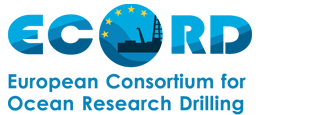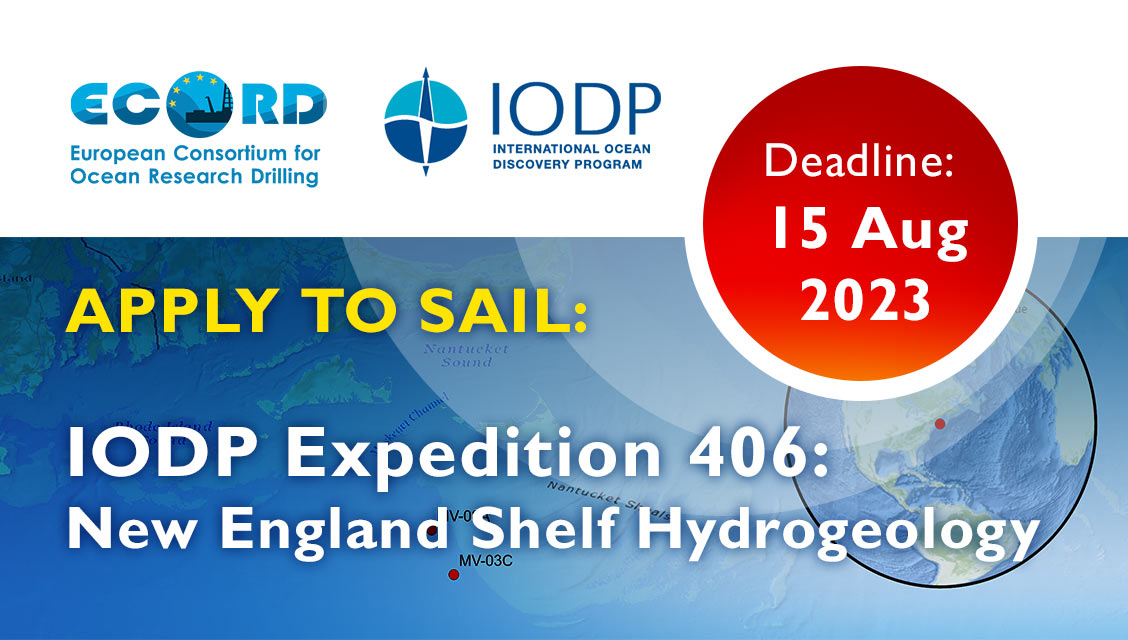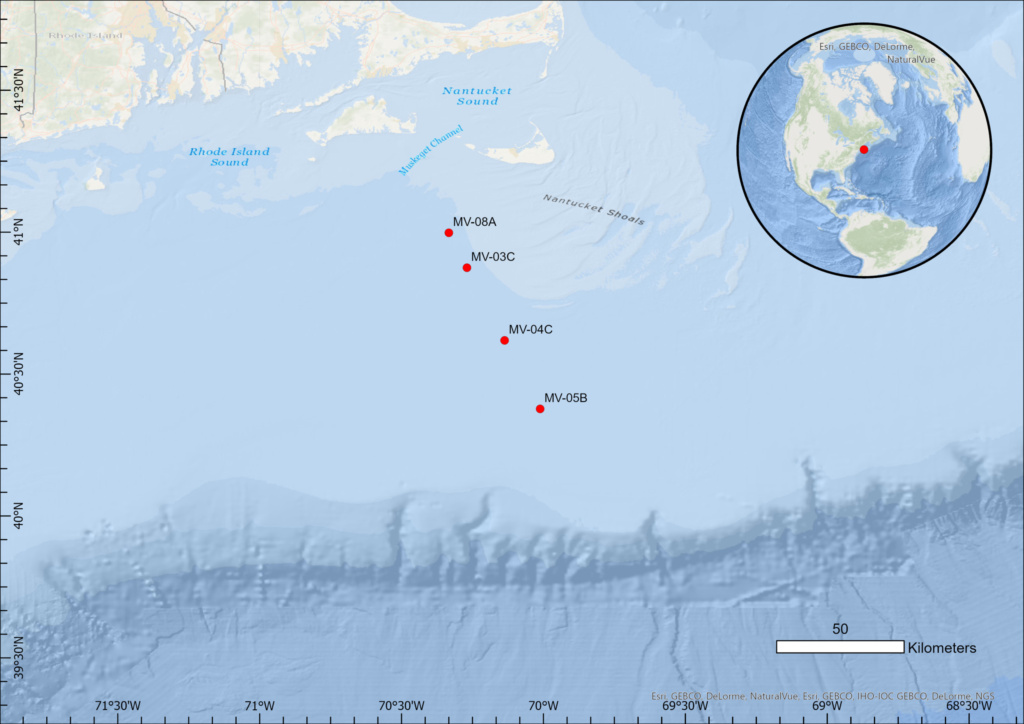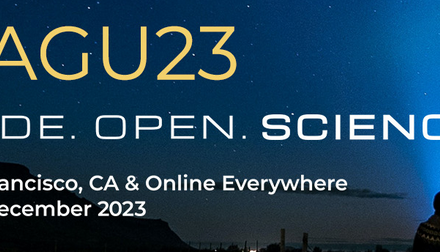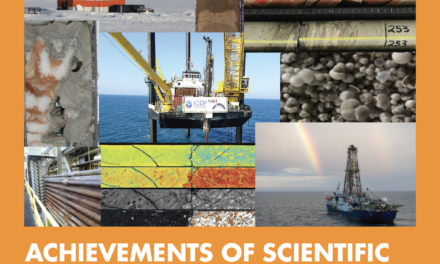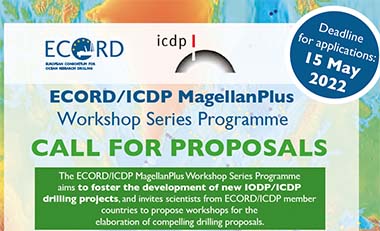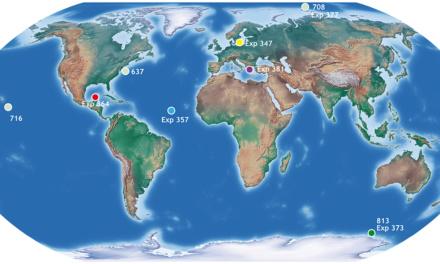CALL FOR SCIENTISTS
IODP Expedition 406: New England Shelf Hydrogeology
Summer 2024
An IODP Mission Specific Platform Expedition organised by the
ECORD Science Operator (ESO)
The deadline to apply is 15 August 2023
Applications are invited from scientists in countries participating in IODP to join the Science Party for IODP Expedition 406: New England Shelf Hydrogeology. Any scientist from an IODP member country with expertise relevant to the objectives of the proposal may apply.
The Co-chief Scientists for this Expedition are Prof. Brandon Dugan (Colorado School of Mines, USA) and Prof. Karen Johannesson (University of Massachusetts Boston, USA).
The proposal upon which this expedition is based was submitted as IODP Proposal #637 ‘New England Shelf Hydrogeology’. The proposal describing the primary drill sites, as well as up-to-date expedition information, can be found on the Expedition 406 webpage http://www.ecord.org/expedition406/. You may also find it useful to consult Gustafson et al. (2019) and Siegel et al. (2014).
Background and Objectives
In many coastal settings worldwide, the distribution of freshwater within continental shelf sediments is far out of equilibrium with modern sea level. One of the most remarkable examples is found on the Atlantic continental shelf off New England where groundwater within shallow Pliocene-Pleistocene sand aquifers over 100 km offshore has low salinity (3000 mg/l or less). On Nantucket Island, a 514m deep borehole penetrating the entire Cretaceous-Tertiary sedimentary package shows considerable variations in salinity with extremely fresh (<1000 mg />IODP Expeditions 313 and 317 also showed abrupt freshwater-saltwater boundaries linked to lithology. This demonstrates the disequilibrium nature of such systems; diffusion tends to eliminate such patterns. Pore fluid within Pleistocene to upper Cretaceous sands beneath Nantucket Island is also found to be modestly overpressured, ~4m relative to the local water table.
We hypothesize that the rapid incursion of freshwater on the continental shelf in New England could have been caused by one or more of the following mechanisms:
- meteoric recharge during Pleistocene sea-level lowstands including vertical infiltration of freshwater associated with local flow cells on the shelf;
- sub-ice-sheet recharge during the last glacial maximum;
- recharge from pro-glacial lakes.
We further hypothesize that the overpressures could be due to
- Pleistocene sediment loading;
- fluid density differences associated with emplacement of a thick freshwater lens over saltwater (analogous to excess pressures in the gas legs of petroleum reservoirs).
We argue these different recharge mechanisms and overpressure models can be distinguished through drilling, coring, logging, and fluid sampling. Noble gas and environmental isotope data will be necessary to completely evaluate recharge models.
This work will extend our understanding of the current and past states of fluid composition, pressure, and temperature in continental shelf environments. It will help better constrain rates, directions, and mechanisms of groundwater flow and chemical fluxes in continental shelf systems. It will contribute to the development of new tools for measuring freshwater resources in marine environments. The apparent transient nature of continental shelf salinity patterns could have important implications for microbial processes and long-term fluxes of carbon, nitrogen, and other nutrients to the ocean. Successful drilling will test process-based models for shelf freshwater off New England. These models can then be applied to other shelf freshwater systems around the world.
Timing
Until the platform and drilling services are confirmed (estimated late summer 2023) all timings are provisional. It is envisaged that the offshore phase of the expedition will last a maximum of 90 days within a window from start of June to end of August 2024, with only a subset of the Science Party participating. Offshore activities will focus on core recovery, curation, sampling for ephemeral properties, groundwater extraction, microbiology, biostratigraphy, physical properties, preliminary lithostratigraphy (whole core observed at core ends and through plastic liners), and downhole logging. The cores will not be split at sea.
Subsequently, an Onshore Science Party (OSP) will be held at the MARUM – Center for Marine Environmental Sciences, University of Bremen, Germany, in late 2024 or early 2025 (exact dates to be confirmed), where the cores will be split. The OSP will be a maximum of 4 weeks long, the exact length dependent on core recovery. All members of the Science Party must attend the Onshore Science Party. Please see http://www.ecord.org/expeditions/msp/ (and linked pages within) for an overview of Mission Specific Platforms in IODP.
Successful applicants will be invited either as an offshore-onshore participant, or as an onshore-only participant. Please note that there are no opportunities for offshore-only participation.
Expertise sought
Opportunities exist for researchers (including graduate students) in all specialties. While other expertise may be considered, specialists in the following fields are required: downhole logging, geophysics, hydrogeology, inorganic geochemistry, microbiology, organic geochemistry, paleomagnetics, paleontology, palynology, physical properties, sedimentology, stratigraphic correlation, and structural geology. For the offshore phase of the expedition, we are particularly looking for the following fields: downhole logging, hydrogeology, inorganic geochemistry, microbiology, organic geochemistry, and sedimentology.
Information webinar
To learn more about the scientific objectives of this expedition, life at sea, and how to apply to participate, please join us for a web-based seminar on Tuesday 27th June 2023 at 1pm GMT.
To register for the webinar, please visit: https://www.surveymonkey.co.uk/r/WWCV2ZM
For further expedition details from ESO, please contact:
David McInroy, ESO Science Manager, dbm@bgs.ac.uk
For further scientific details, please contact:
Brandon Dugan, Expedition 406 Co-chief Scientist, dugan@mines.edu
https://www.ecord.org/expedition406/
To learn more about the scientific objectives of this expedition, life at sea, and how to apply to participate, please join us for a web-based seminar on Tuesday 27th June 2023 at 1pm GMT.
For further expedition details from ESO, please contact:
David McInroy, ESO Science Manager, dbm@bgs.ac.uk
For further scientific details, please contact:
Brandon Dugan, Expedition 406 Co-chief Scientist, dugan@mines.edu
ECORD Science Support & Advisory Committee
Angelo Camerlenghi (ESSAC Chair)
Hanno Kinkel (ESSAC Science Coordinator)
e-mail: essac@inogs.com
The Application Process
The Application Process is open to scientists in all ECORD member countries. Please download the Apply to Sail general application forms from the ESSAC webpage:
Please, fill out all applicable fields and send it to the ESSAC office by email (essac@ogs.it) with the following additional documents by the deadline of 15 August 2023:
- A letter of interest outlining your specific expertise, previous involvement in DSDP/ ODP/ IODP expeditions, research interests, primary research goals of your proposed participation.
- CV and publication list.
- Early career researchers must additionally provide a letter of support from their host institution, including information on post-cruise science support.
All applications should state how you intend to achieve your proposed scientific objectives, with information on the funding scheme and support from your institution or national funding agencies. More information can be found under: http://www.ecord.org/expeditions/apply-to-sail/
In addition to the ESSAC application, all applicants must inform their national office or national delegate and send them a copy of their application documents. The national offices or national delegates can also provide information regarding travel support, post-cruise funding opportunities, etc.
See http://www.ecord.org/about-ecord/about-us/ for a list of the national contact persons.
For further information or questions, please contact the ESSAC Office:
ECORD Science Support & Advisory Committee
Angelo Camerlenghi (ESSAC Chair)
Hanno Kinkel (ESSAC Science Coordinator)
Istituto Nazionale di Oceanografia e di Geofisica Sperimentale – OGS
via Beirut n. 2
34151 Trieste – Italia
e-mail: essac@ogs.it
website: www.ecord.org
